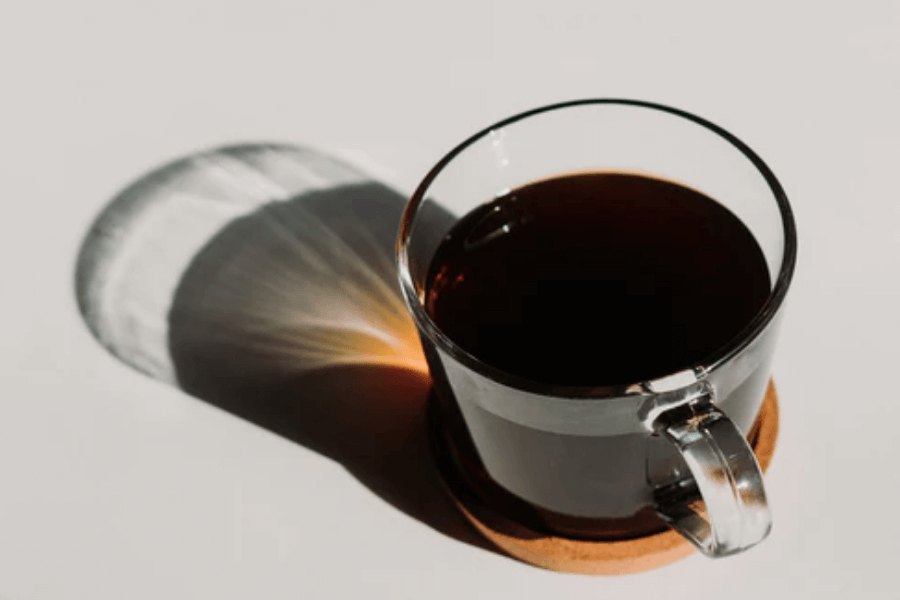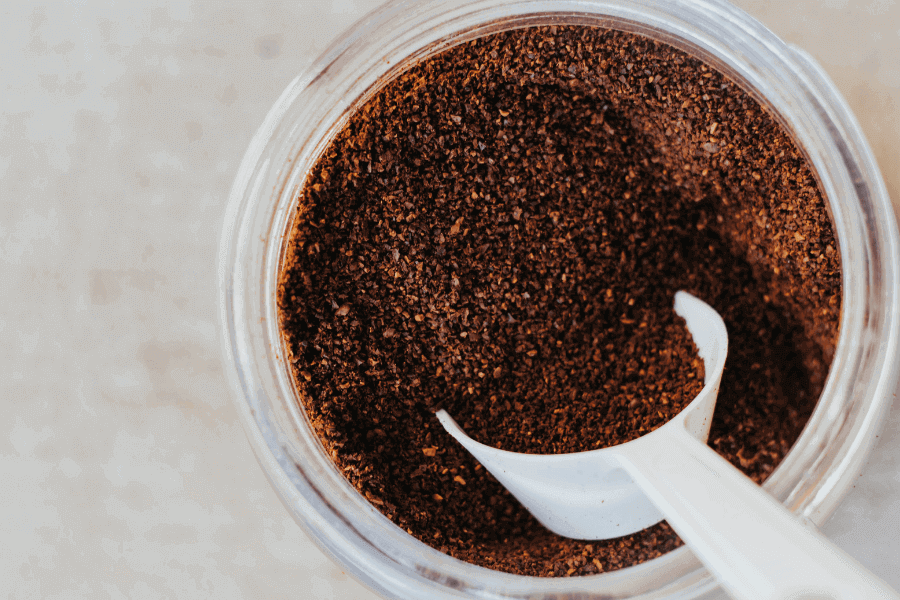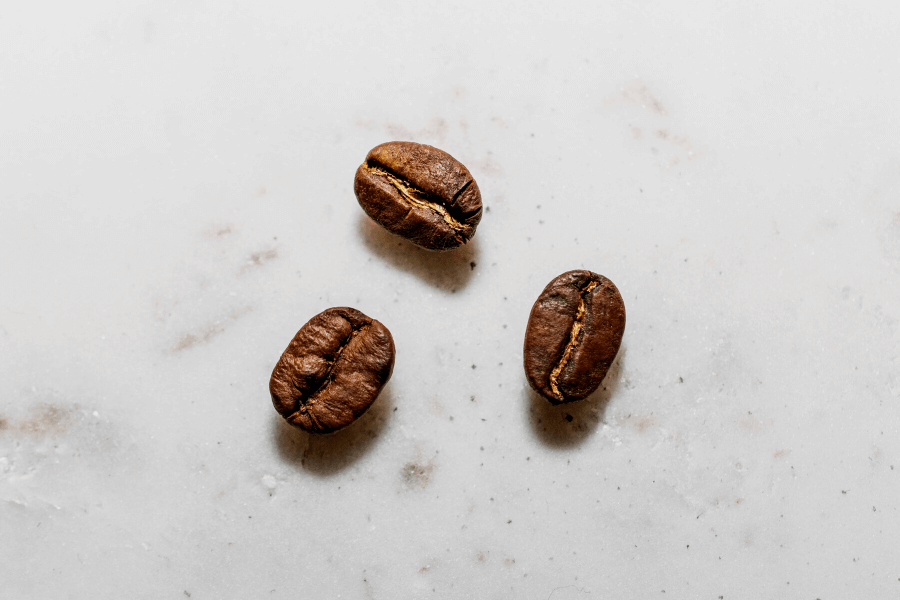Why Is My Coffee Bitter And How Can I Fix It?
Admit it, you’ve mocked the vocabularies of food and drink aficionados at least once in your life.
Assuming a snobbish accent and throwing around words like piquant, tart, and ashy when describing flavor is fun (and often funny), but it’s also useful. Foodie-speak describes flavor and flavor profiles accurately.
What does this have to do with coffee, though?
If you’re asking “why is my coffee bitter?” and wondering how to fix it, this post will help. But first, we have to establish what bitterness means in the coffee sphere — I can almost guarantee it’s not what you think.
The Bold and the Bitter
Coffee profiles are a serious business because they detail the flavor experience of your joe. If you know that you prefer bold, smoky tastes, you won’t reach for coffees listed as mild, bright, and fruity, for example.
I have a question for you: How many people do you know who enjoy coffee that’s as bitter as poison? You know the type, they drink their coffee black and unsweetened and tell you that if coffee isn’t strong it’s worthless.
Not to rain on anyone’s parade, but a coffee’s flavor profile has absolutely nothing to do with strength. So most of the time, people who say they love bitter coffee have their lingo mixed up and actually prefer bold coffee.
But what’s the difference, and why does it matter?
What Is Bold Coffee?
While there isn’t an official definition of what constitutes ‘bold’, brewers pinpoint an intense, dominating, and clear coffee flavor. Boldness is typically associated with dark roasts (though not limited to them) and is often described as smokey, toasty, and sometimes, chocolatey.
To put it simply, boldness is when coffee tastes like coffee — when the coffee’s aroma, roasted notes, and natural bitterness are clearly apparent when you take a sip.
You can boost the boldness of any coffee by altering your coffee-to-water ratio in favor of the bean. Likewise, you can lessen boldness by diluting your coffee or adding milk and sweetener to taste.
Bitter Coffee Explained
Bold coffee is a good thing, but bitter coffee isn’t as desirable. While all coffee has some natural bitterness, it’s not supposed to be acrid.
When you drink a cup of coffee, you’re experiencing a variety of flavor sensations. A fruity note here, a tangy touch there, a dash of piquancy in the middle with some astringency for punch… you get the gist.
When bitterness overpowers all the other flavors and becomes the only thing you experience, though, it’s a problem.

Why Coffee Tastes Bitter
Did you know that there are more than a thousand chemical compounds in coffee? Many of these compounds contribute to coffee’s pungency. Caffeine, for example, is what causes coffee to be bitter, but it’s not acting alone.
According to a 2007 report that has been substantiated over the years, two chemical culprits give coffee its sting: chlorogenic acid lactones and their byproduct, phenylindanes.
Don’t worry, I’m not going to give you a chemistry lesson. All you need to know is that chlorogenic acid (CGA) and its lactone compound (CGL) are abundant in plant-based foods. They help regulate blood pressure and blood sugar levels and are known for their bitter taste. Phenylindanes are what’s left behind when CGA or CGL breaks down. Their taste has been described as harsh and lingering.
Research shows that coffee has some of the highest CGA content of all plant constituents. To take it further, CGLs are common in light roasts, while dark roasts have higher levels of phenylindanes.
Roasting impacts bitterness too as it affects CGL levels and prominence in beans, and breaks CGL down into phenylindanes. This explains why dark roasts have more of a bite than their medium or light counterparts.
Chemical compounds can’t be blamed for bad coffee, though. Java shouldn’t be biting or unpleasant. If your coffee tastes bitter beyond repair, something went wrong in the brewing process.
Why Does My Coffee Taste Bitter?
Numerous factors contribute to bitter coffee. Robusta beans are more pungent than Arabica, for example, and blended coffee can mean more bitterness than single-origin grounds. More often though, bitter coffee is the result of a poor brewing method.
If your coffee is persistently bitter and undrinkable, there are seven possible reasons:
1. Over Extraction
It doesn’t matter how you brewing — whether it’s with an espresso machine, a french press, or a cold brewer — over-extraction is one of the most common mistakes that coffee lovers make. It’s also one of the fastest ways to ruin coffee’s flavor.
We want to get the most out of our coffee, but over-extraction is the perfect example of too much of a good thing.
When you leave your coffee to steep for too long or pull an espresso shot for longer than recommended, over-extraction occurs. The water starts breaking down and extracting the coffee bean fibers, and these don’t taste nice at all.
2. Under Extraction
On the flip side, too little extraction and you’ll run into a similar problem. Under extraction won’t tap into the bean itself, but it will lead to disappointing, unpalatable coffee. If beans aren’t given enough time to brew, bitterness is the result.
That’s because caffeine (which is bitter on its own), is one of the first things extracted in the brewing process. Sugars, meanwhile, need a little more time to break down and counteract the acidity.
3. Improper Grind Size
Size matters in coffee. And no, I don’t mean that large cups are better.
If you grind your beans too finely, you’re setting yourself up for over-extraction. Grind too coarsely though and you risk under-extraction.
You want to hit the grind size sweet spot where water can extract the best possible flavor from your beans. For this, do some research into which grind size suits which brewing method. Espresso, for example, is best with a fine grind while French press brews work well with a medium-coarse grind.

4. Your Coffee Is Scorched
Water temperature is one thing you’ll want to control, lest you anger the bean gods. Like extraction and grind size, it applies to both ends of the scale.
Coffee can be brewed in cold water, but it takes hours upon hours to extract flavor. If your water is cooled and yields bitter coffee, it’s technically an under-extraction issue.
On the other hand, if your water is too hot, it could be a problem. I’ve said it before and I’ll say it again: coffee’s bitterness is heat-activated. If you’re brewing your coffee in the hot springs of Hell, its astringency will be overbearing.
5. Your Beans are Stale
When coffee beans are left to stand for too long, they begin to oxidize, and this leads to sour, bitter joe for two reasons:
First, oxidation destroys the oils and aroma of beans. You can’t extract good flavor from stale beans simply because there’s no flavor left in them. Second, oxidation raises the acidity level in coffee beans, so the extra bite is inevitable.
Always use fresh beans and grind them immediately before use. If you use pre-ground beans, make sure they’re kept in an air-tight container and used within a week of opening the packet.
6. Your Ratio Is Wrong
Maths isn’t my strong point, but it is worth struggling through for a great cup of coffee! Brewing rations might seem like pretentious nonsense, but they can certainly help you prevent bad and/or bitter coffee.
You don’t have to stick to the golden ratio (two tablespoons of ground coffee for every six ounces of water). If the ratio is too weak or too strong for your tastes, you should make some tweaks so you get the flavor you like.
But if you’re adding seven tablespoons of coffee to four ounces of water, you’ll end up with extremely pungent coffee. Dilution may weaken coffee’s flavor, but it weakens the acidity and bitterness too.
7. Your Machine Needs a Clean
Let’s suppose you have a magic ratio that works for you every time. You’ve perfected the art of grinding and extraction, and you use a thermometer to manage water temperatures. But your coffee is still bitter. What do you do now?
Clean your machine.
Old grounds are a big problem because if they stay in your machine, they’ll continue to extract every time you run the device. And when beans are over-extracted they start to pollute your joe with unpalatable bean-fiber flavors.
If you can’t pinpoint other reasons for consistently bitter or bad coffee, you may want to give your machine some attention. Clean each component carefully and in the case of espresso makers, backflush the unit several times to get rid of any stale grounds still lurking.
How To Fix Bitter Coffee
If any of the reasons for bitter coffee listed above resonate, know that these mistakes are very common and also easy to fix.
Let’s talk solutions. Whether you need a long-term game plan or a quick bitter coffee fix, here’s how to make coffee less bitter and more flavorful.

1. Choose Different Beans
If astringency isn’t for you, consider switching your beans to something a little more piquant — especially if you’re buying pre-ground coffee.
Keywords that generally imply heavy, bitter flavors include:
- Dark roast
- Bold
- Intense
- Strong
- Blend
- Robusta
It’s not to say that every single bold coffee will be bitter. Rather, these terms are deliberately placed to appeal to people who believe bitter coffee is stronger.
2. Learn How To Grind
If you can get your hands on an automatic grinder, that’s great. If not, do yourself a favor and learn how to grind coffee beans manually. It’s not difficult, but a little research and practice will go a long way.
Learning how to grind coffee beans means smoother extraction every single time, no matter which type of coffee you’re brewing. Click here for a run-down on the best affordable manual coffee grinders.
Pro tip: Your filters may not be appropriate for the grounds you’re using. As an example, fine grounds won’t do well in a French press. They’ll slip through the mesh and make it into your cup.
3. Invest In Cool Tools
Speaking of grinders, if you want to minimize the chances of bitter brews, invest in the tools of the trade. Even the basics — a thermometer, timer, and a kitchen scale — will make a significant difference.
4. Have A Formula
Investing in the right tools will come in handy for this step. Again, you don’t have to follow the golden ratio exactly, you just have to determine what works for you. To do that, you need accurate measurements so you can take note of what hits the spot and what doesn’t.
Weigh your beans with a scale. Check your water temperature. Time your brewing exactly. For more complicated methods, such as espresso brewing, keep track of your pressure, the tightness of your grounds, and extras like the milk’s consistency and temperature too.
Come up with a winning formula and you’ll be able to repeat it time after time — and avoid bitter coffee.
5. Maintain Your Equipment
If you don’t want old grounds polluting fresh brews, make an effort to keep your machine clean. It’s recommended that you do some basic upkeep every day, or after every brew if possible. Discard old grounds, rinse your reusable filters, and wipe your machine down. Don’t forget to rinse your mug while you’re at it!
6. Try Decaf
Caffeine isn’t always the problem, but it could be. Remember that caffeine is extracted early in the brewing process, so there’s no escape from its bitterness in most brewing methods.
Decaffeinated coffee can still be full-bodied, robust, or bold, it just lacks the bite that caffeine adds on top.
7. Add Flavor Enhancers
You don’t have to drink black coffee, even if all the cool kids are! You can enjoy coffee with cream and sugar. Remember that pungent coffee isn’t better by default, and dilution is perfectly okay.
If you want a caffeine boost without attacking your taste buds, add cream, milk, sugar, or even a spoon of hot chocolate. Coffee is meant to be enjoyed.
Bonus tip: If all else fails, start cold brewing. Due to its cold water extraction, this method removes a lot of the bitterness found in warm coffee. For an extra-smooth cold brew experience, try nitro coffee. It’s cold, bright, and delicious.

Conclusion
Bitter coffee isn’t inherently bad. There are many people out there (myself included) who prefer more intense coffee flavors. If you’re looking for joe that packs a punch, choose darker roasts, stronger beans, or more intense brewing methods.
But if your coffee is unnaturally bitter, you have to pinpoint the problem before you can correct it. Anything from an unkempt machine to overzealous grinding could be the culprit. More often than not, if you fix your method, you’ll have coffee that delivers just the right amount of bitterness.
Bitter Coffee FAQs
Does Salt Counteract Bitter Coffee?
It might. Adding a pinch of salt to a cup of coffee is said to neutralize acidity and bitterness. Try it if you’re brave enough, and let us know how the seasoned coffee experiment went!
Which Coffee is the Most Bitter?
If we’re talking about which type of coffee is the most bitter, a dark roast single-origin brew made from Robusta beans is a strong contender.
If you’re wondering which coffee to reach for (or avoid), espresso won’t disappoint. But an espresso shot can be tamed with textured milk for a cappuccino or latte.
Some brands pride themselves on coffee that packs a punch, with some even claiming they make the strongest coffee in the world!
Is Bitter Coffee Bad for You?
Bitter coffee is often higher in acidity and isn’t ideal if you struggle with acid reflux, indigestion, or stomach sensitivities. It’s also known that many of the harmful chemicals in coffee are extracted early — as are bitter tones. Still, coffee is coffee and there’s scant evidence to support the idea that black, bitter coffee is worse (or better) than sweetened, bright java.





